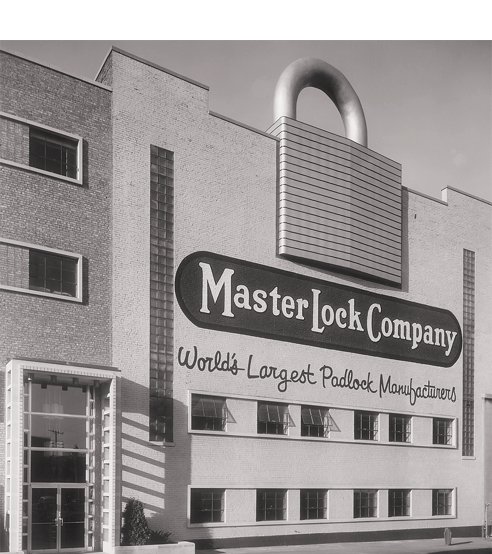Hundred-Year-Old Industry Plans To Leave Midwest Home

The prosperity and power of Milwaukee’s working class, especially its large Black population, has been drastically eroded in recent decades as major corporations— Rockwell, A.O. Smith, Allis-Chalmers, Johnson Controls, Briggs & Stratton, Delco and many other firms—have relocated production to China and Mexico, emptying out a huge share of the city’s industrial base.
Now, another iconic firm—Master Lock, founded in Milwaukee back in 1921—has announced plans to move the last 330 manufacturing jobs to another site in North America that is currently undisclosed. This comes just after a year in which Master Lock raked in an all-time record in revenues, a source of bitterness among the members of United Auto Workers Local 469.
Master Lock is a subsidiary of the Deerfield, Illinois-based Fortune Brands Innovations, less than seventy miles away from the lock-making plant.
Master Lock has a vast symbolic meaning for the Milwaukee community that resonates broadly. “The story of Master Lock is the story of Milwaukee,” AFL-CIO President Stephanie Bloomingdale declared at a rally marking UAW Local 469’s fight to save Master Lock jobs.

Master Lock
Master Lock headquarters, Milwaukee, Wisconsin. Called in 1950 the largest padlock manufacturer in the United States.
Founded 102 years ago in Milwaukee’s central city, it is the “sole survivor in a huge graveyard of empty factories in the city’s west side industrial corridor,” The New York Times observed in 2012. “Master Lock leaving would just leave a great big vacant space, like the other empty lots around here, “ UAW leader and former Master Lock worker Anthony Rainey tells The Progressive.
The once-thriving area surrounding the plant is already in deep “man-made” distress, as retired UAW representative John Drew pointed out. The plant’s zip code is plagued by pervasive joblessness, a shocking infant mortality rate, and an appallingly high incarceration rate.
“Some of our jobs pay $28 to $30 an hour,” explains United Auto Workers President Mike Bink, who is on the verge of retiring from Master Lock after forty-one years. “How are people going to replace that?”
With Milwaukee’s supply of family-sustaining union jobs decimated by deindustrialization and corporate flight, the biggest source of jobs is now in the generally low-wage healthcare sector, comprising four of the five largest employers in the Milwaukee area.
The prospect that Master Lock will be removing one of the very last major high-wage sources of jobs is triggering exceptionally harsh rhetoric from public officials in support of UAW Local 469.
At a union rally, Mayor Cavalier Johnson recalled how Master Lock basked in praise from President Barack Obama during a 2012 visit to the plant. Obama hailed the corporation for returning a group of jobs to the United States, citing this as a significant example of what he called an “insourcing” trend. While evidence of this general trend turned out to be very flimsy nationwide, Master Lock benefitted from a massive level of favorable national publicity.
“I find it very ironic,” declared Johnson, “a decade ago, Master Lock was indulged with the presence of the United States President to celebrate their concern with American jobs. Master Lock and its owner Fortune Brands ought to re-think their decision and keep the jobs here for another century.”
County Executive David Crowley was equally critical in his speech. Milwaukee was once known as a city with the largest Black middle class, but that faces another threat with Master Lock and Fortune Brands exiting. “Master Lock is profitable, but is ready to abandon the community for the profits of a wealthy few,” Crowley said to fervent applause.
Indeed, Master Lock has been a consistent profit generator for Fortune Brands Innovations. The firm brought in an all-time peak of $860 million in revenue in 2022. That was part of Fortune Brands’s $4.7 billion in revenue in 2022. CEO Nicholas Fink vacuumed up $10,170,381 in compensation in 2021.
Master Lock is clearly one of Fortune Brands’s most prized subsidiaries, as Fortune Brands shelled out millions for costly, well-crafted Super Bowl ads long regarded as one of the best Super Bowl ads over past decades.
However, in Milwaukee, Fortune Brands’s main “innovation” at Master Lock has been shipping jobs out. From a peak of 1,154 jobs about twenty-five years ago, before Master Lock opened a new plant in Nogales, Mexico, the workforce has been whittled down by 800 jobs despite a long history of “labor-management cooperation.”
Master Lock is likely the most prominent asset for Fortune Brands. Its status as a consumer product used heavily by working people makes it potentially vulnerable to pressure from the public delivered through a massive social media effort and the possibility of a boycott.
After all, says Mike Bink, the UAW 469 president, “Master Lock’s most valuable part is its name.”
Roger Bybee, a frequent contributor to The Progressive, is a freelance labor journalist and labor-studies instructor based in Milwaukee, Wisconsin, and the former editor of the Racine Labor weekly.
Since 1909, The Progressive has aimed to amplify voices of dissent and those under-represented in the mainstream, with a goal of championing grassroots progressive politics. Our bedrock values are nonviolence and freedom of speech. We publish multiple stories every day on our website, and also produce a bimonthly magazine featuring investigative reporting, cultural and political analysis, and poetry. You have the power to make a difference at The Progressive by giving us the strength to grow—allowing us to dig deeper, hit harder, and pull back the curtain further to hold accountable those who abuse power! Donate
